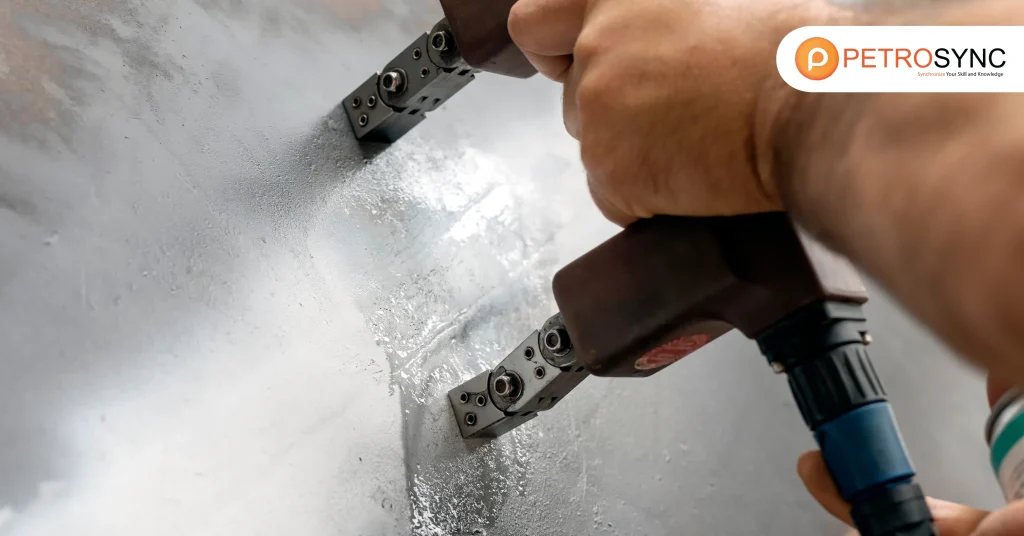In today’s oil and gasoline industry, security and reliability stand as the basis of each and every operation. Non-Destructive Testing (NDT) inspectors are fundamental experts who make sure of the integrity of indispensable infrastructure except inflicting damage.
Their understanding helps each operational effectiveness and hazard management, assisting agencies keep away from pricey downtime and workable hazards. Understanding the function of an NDT inspector and the skills required is fundamental for senior leaders, managers, and CEOs who are searching to make investments in first-class assurance and staff development.
This information will supply in-depth insights into NDT inspectors and their importance, plus a seam at how you can increase your team’s skills via centered training.
Table of Contents
ToggleWhat is the Role of an NDT Inspector?

An Non Destructive Testing Inspector is in charge of conducting inspections and the utilization of a variety of non-destructive techniques to word flaws, corrosion, or defects in supplies and structures. These inspections are carried out on pipelines, stress vessels, storage tank, and extraordinary quintessential property in the oil and gas sector.
The inspector ought to examine stringent employer necessities and regulatory requirements, such as those outlined by means of the American Society for Nondestructive Testing (ASNT) or ISO 9712, making positive consistency and reliability. Their tasks go beyond simply operating testing equipment.
NDT inspectors analyze test results, generate comprehensive reports, and make recommendations for maintenance or repairs. Their findings can prevent catastrophic failures by identifying potential problems early, contributing to safer operations and reducing unexpected shutdowns.
By guaranteeing asset integrity, NDT inspectors play a key role in protecting personnel, the environment, and company investments. Their expertise helps companies comply with legal obligations while enhancing overall operational excellence.
What are NDT Qualifications?
Becoming a certified NDT inspector entails rigorous education, sensible experience, and certification. Certifications serve as proof of competency and are vital for professional development and organizational credibility.
Globally identified certifications encompass these from ASNT, PCN, and ISO 9712, every structured into three levels:
- Level I technicians operate unique inspections beneath supervision.
- Level II inspectors independently habits tests, interpret results, and generate reports
- Level III professionals oversee programs, strengthen procedures, and furnish professional technical guidance.
Achieving Level II certification is frequently regarded as the minimal requirement for NDT inspectors in many industries. This ensures inspectors have the technical understanding and judgment quintessential to control complicated trying out scenarios.
What is the Difference Between NDT Technician and NDT Inspector?
Though regularly confused, the roles of an NDT technician and an Non Destructive Testing Inspector are distinct. Technicians are to blame for working, checking out devices and collecting information in accordance with predefined procedures. Their focal factor is on executing assessments effectively and documenting preliminary findings.
Inspectors, however, keep a larger responsibility. They interpret the records gathered with the aid of technicians, examine the circumstance of materials, and make necessary selections related to asset safety. Inspectors additionally supervise technicians, make sure compliance with checking out standards, and talk findings with stakeholders.
This hierarchical shape ensures a thorough great assurance process, minimizing human error and improving the accuracy of inspections.
Is NDE and NDT the Same?
While intently related, Non-Destructive Evaluation (NDE) and Non-Destructive Testing (NDT) are no longer precisely the same. NDT usually refers to the techniques and methods used to notice floor and subsurface defects besides unfavorable the material.
NDE, on the other hand, encompasses a broader scope such as the contrast of fabric properties, situation assessment, and lifespan prediction. NDE strategies can also consist of NDT methods however lengthen to examining fabric conduct and integrity over time.
Understanding this difference helps businesses choose the proper strategy primarily based on their unique renovation and reliability goals.
Join PetroSync Training to Gain Industry Expertise
If you’re aiming to decorate your organization’s security tradition and operational excellence, investing in specialist coaching is key. PetroSync presents industry-leading publications tailor-made for NDT inspectors, technicians, and senior management. Our packages are designed to combine technical information with realistic application, delivered by using professional professionals.
By turning into a member of PetroSync training, you now now not totally earn identified certifications on the other hand moreover reap strategic insights that decorate decision-making and asset management. Our alumni continuously file improved inspection accuracy, reduced downtime, and extended regulatory compliance — translating into tangible business business enterprise growth.
Take benefit of our complete coaching options to empower your workforce, decrease risks, and enhance operational reliability. Visit PetroSync nowadays and find out how our know-how can aid your organization’s trip to excellence.

Results-oriented and thorough SEO specialist with extensive experience in conducting keyword research, developing and implementing digital website promotion strategies and plans, managing campaigns to develop company websites in the digital world, excellent knowledge of marketing techniques and principles, and attentive strong attention to detail.









